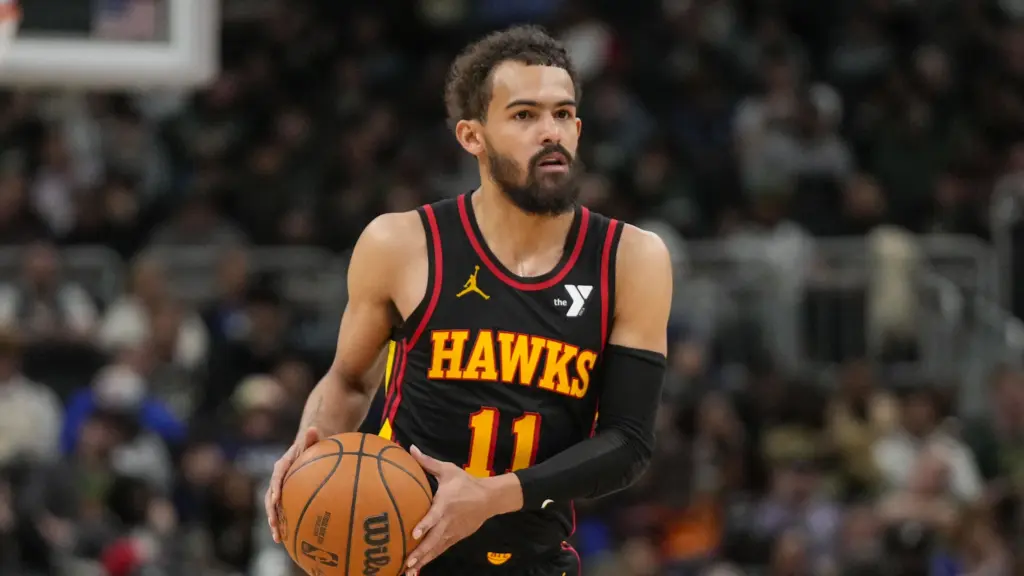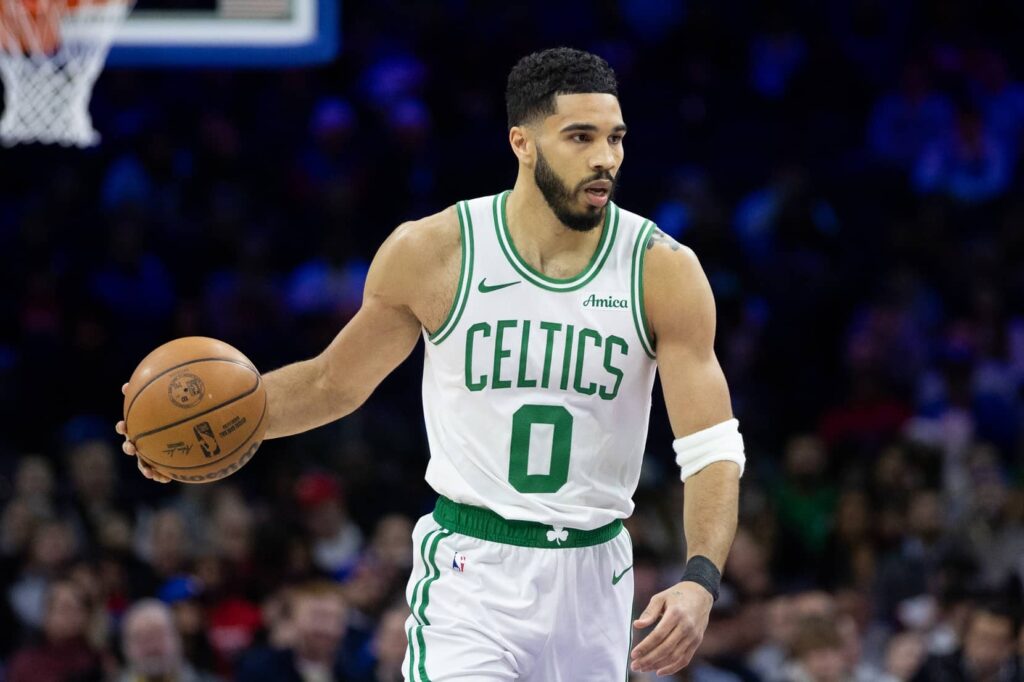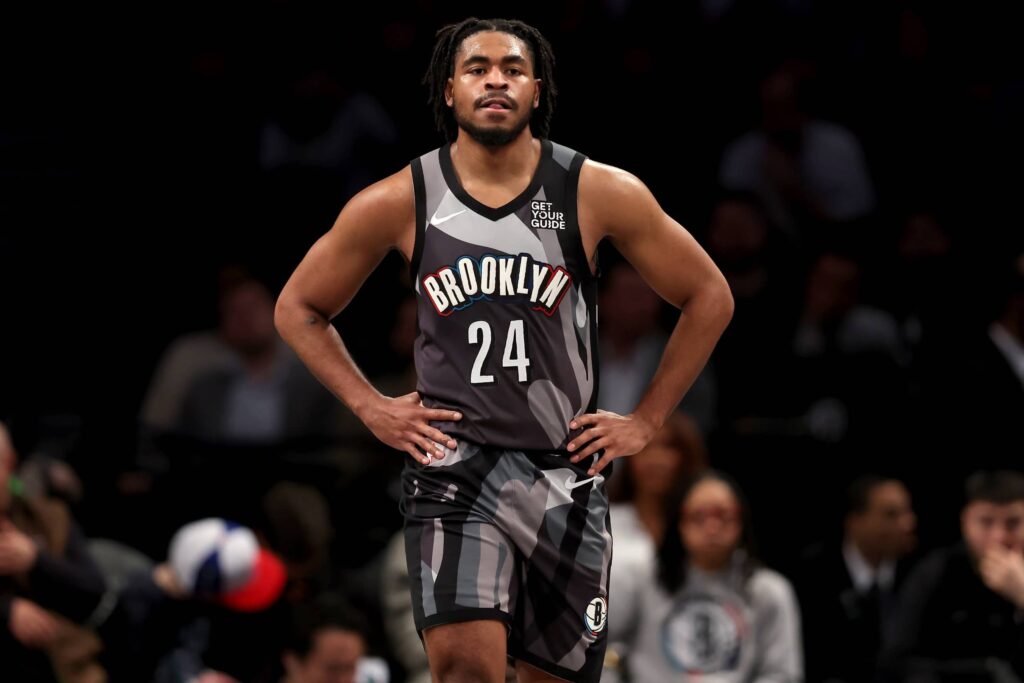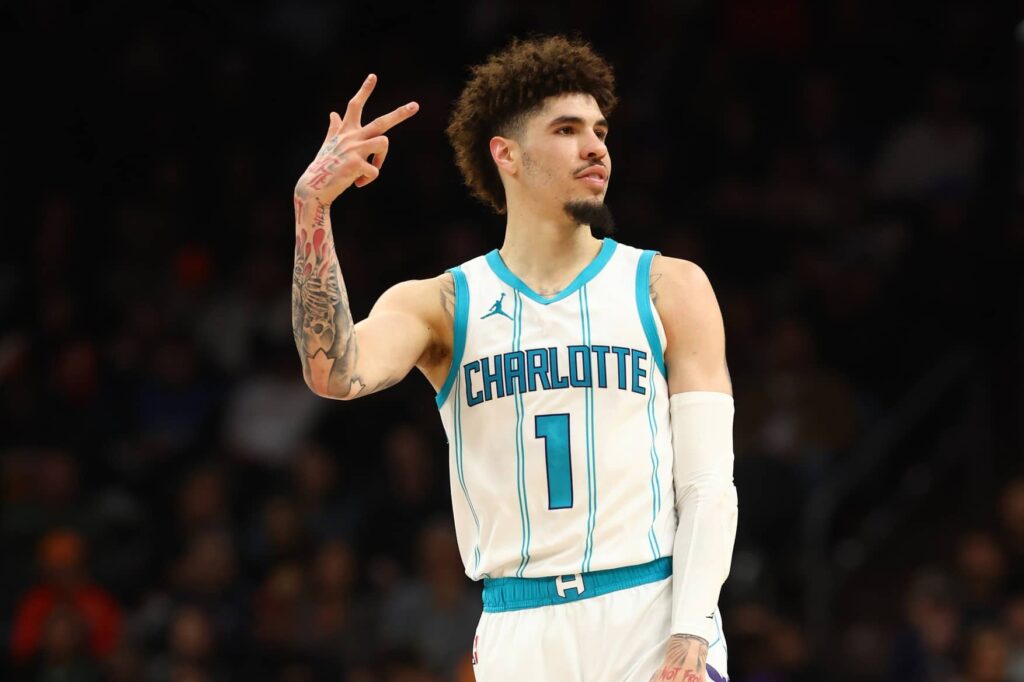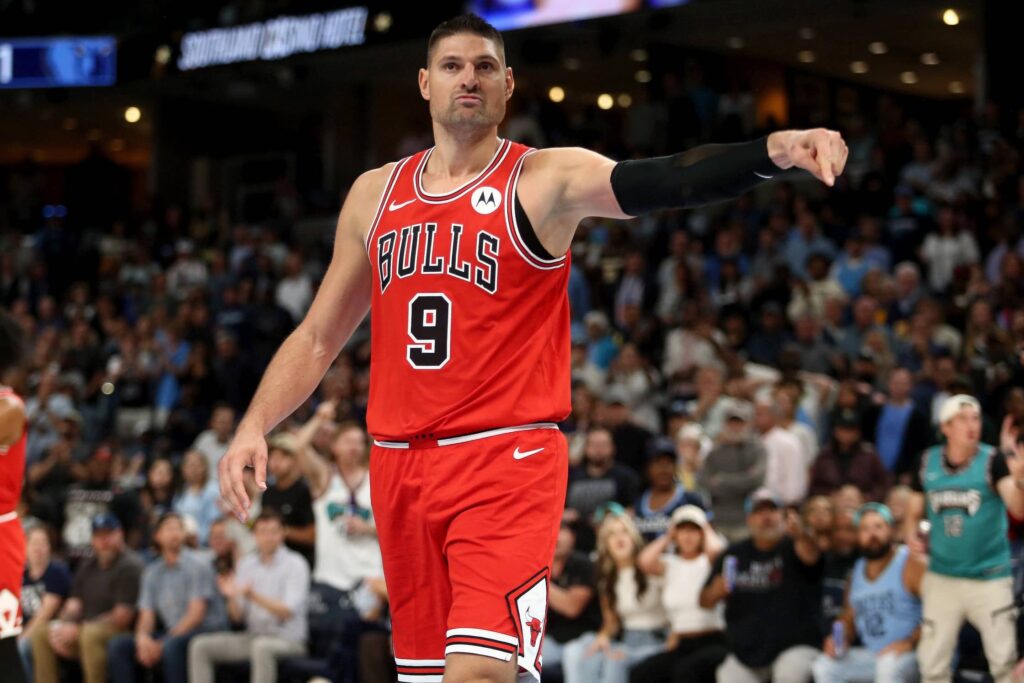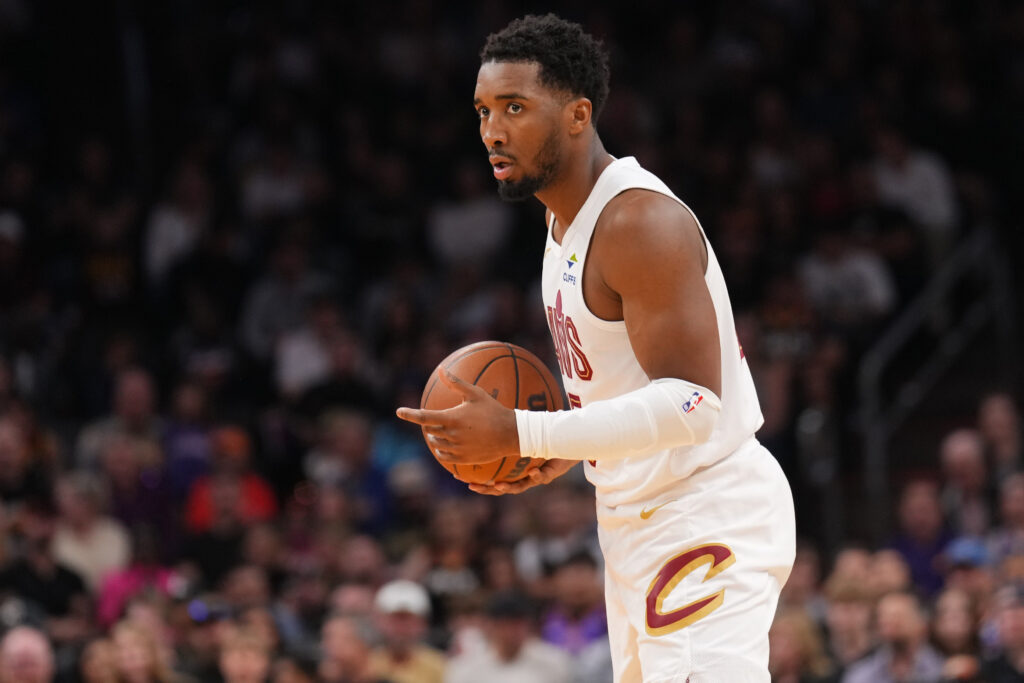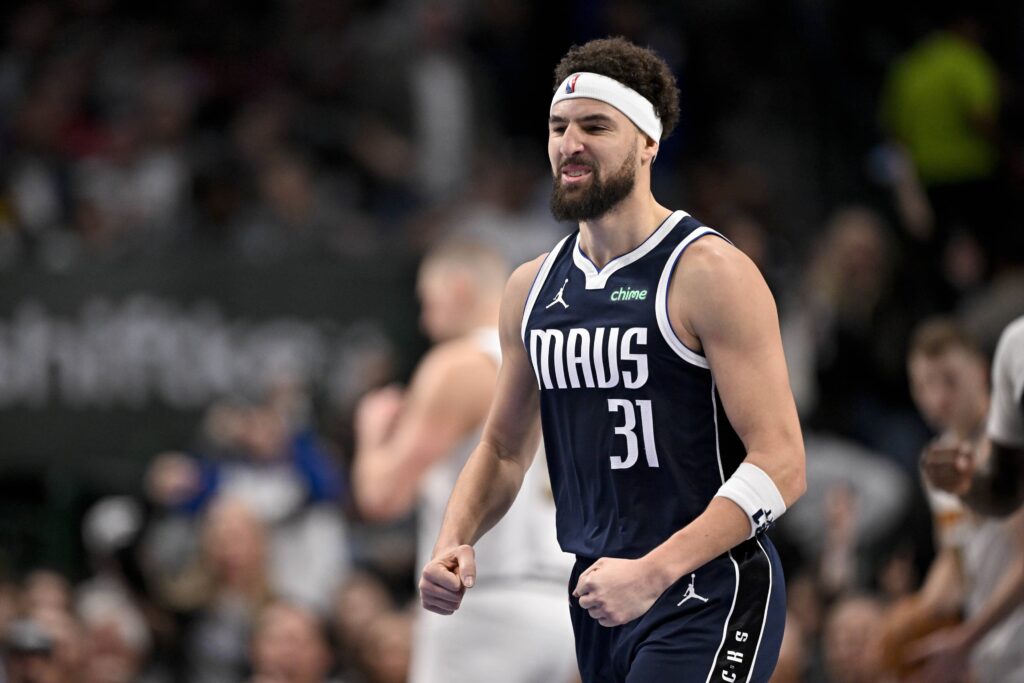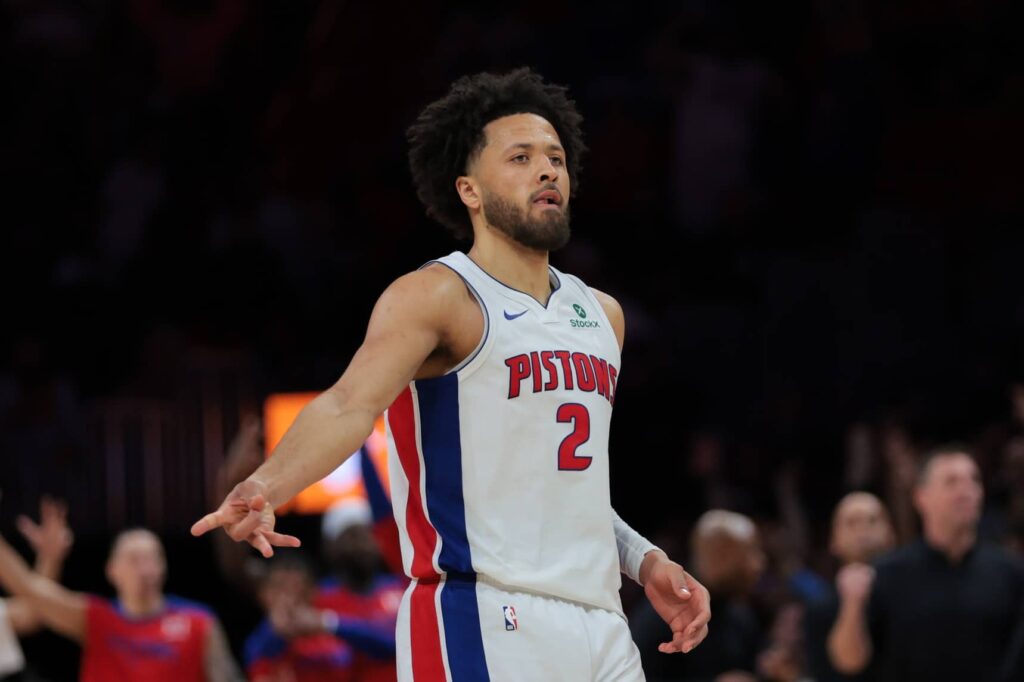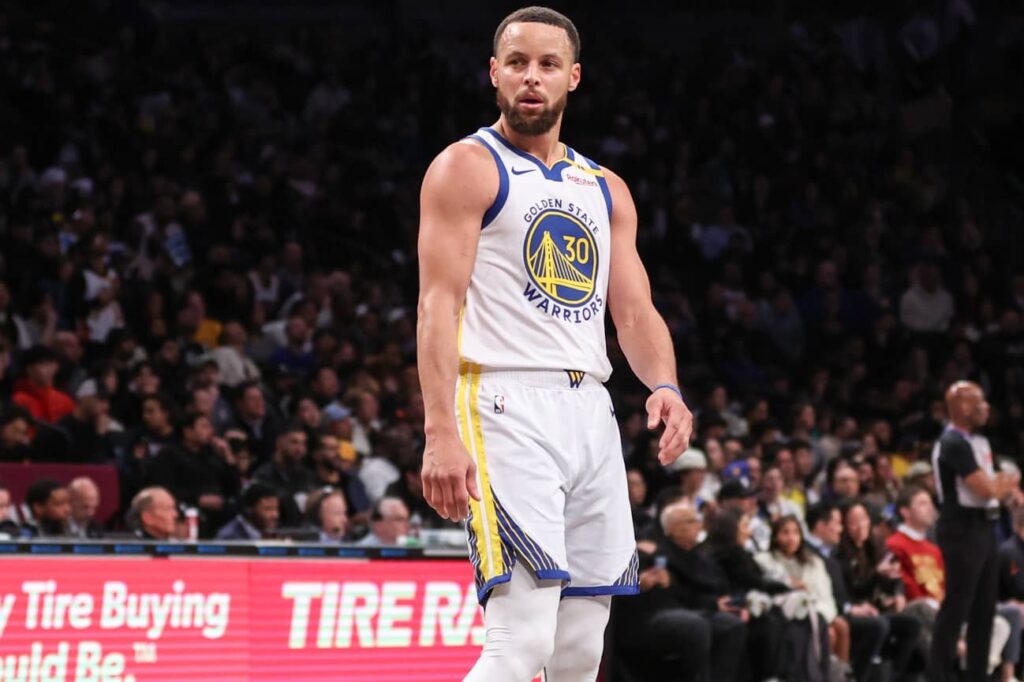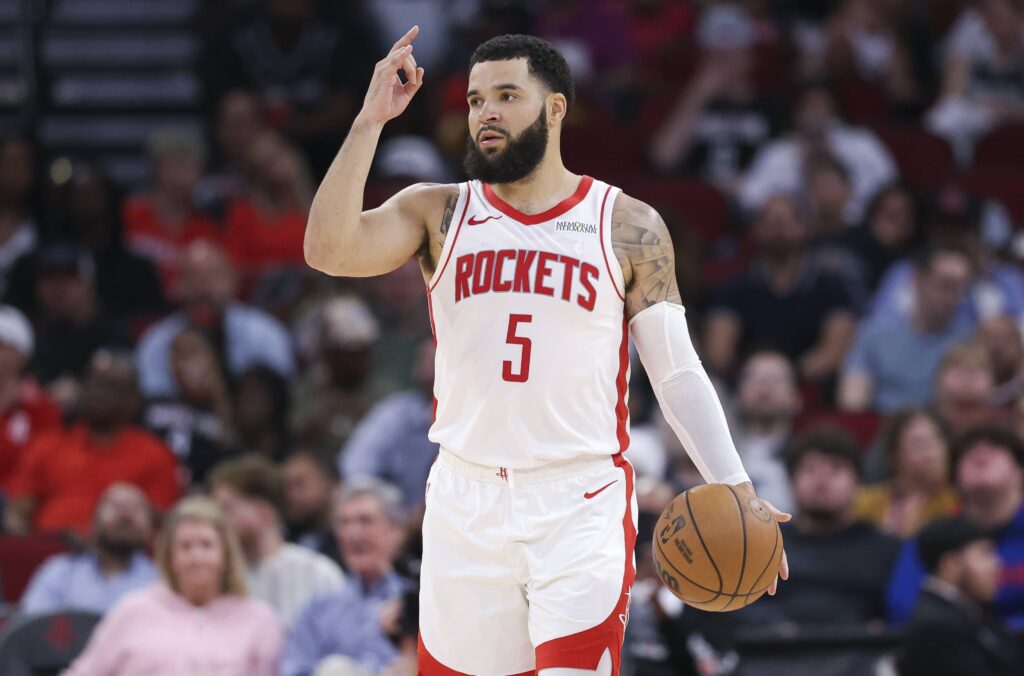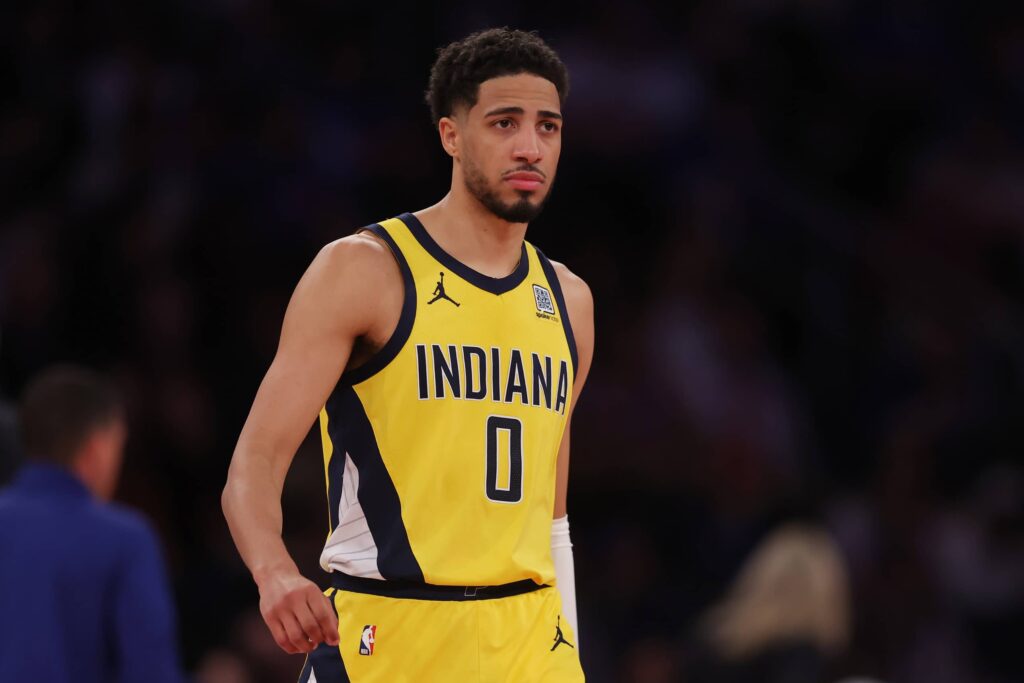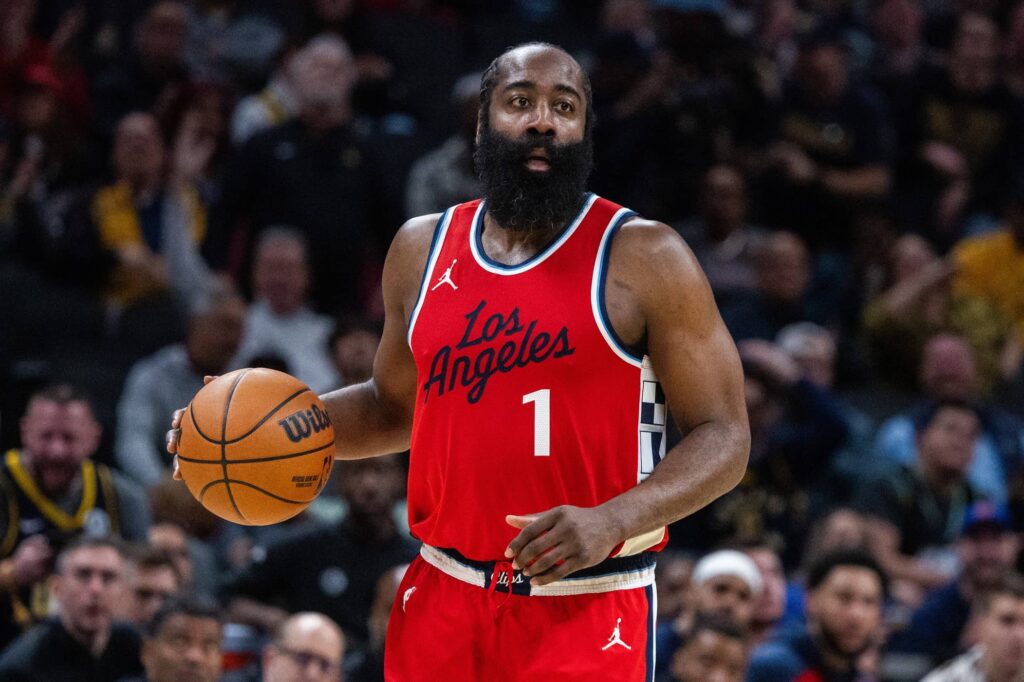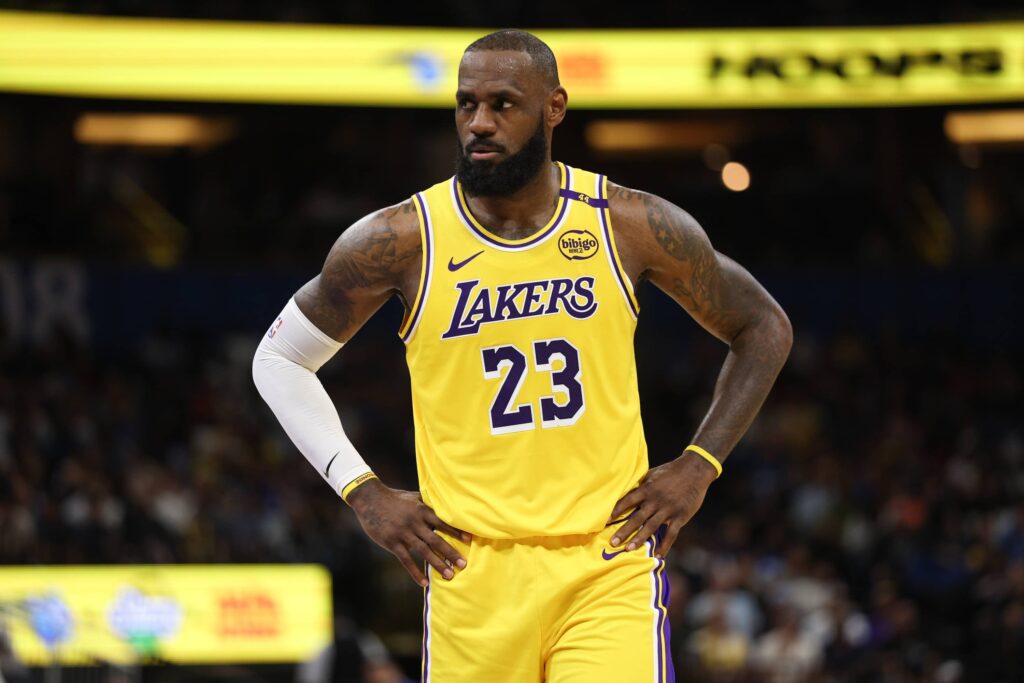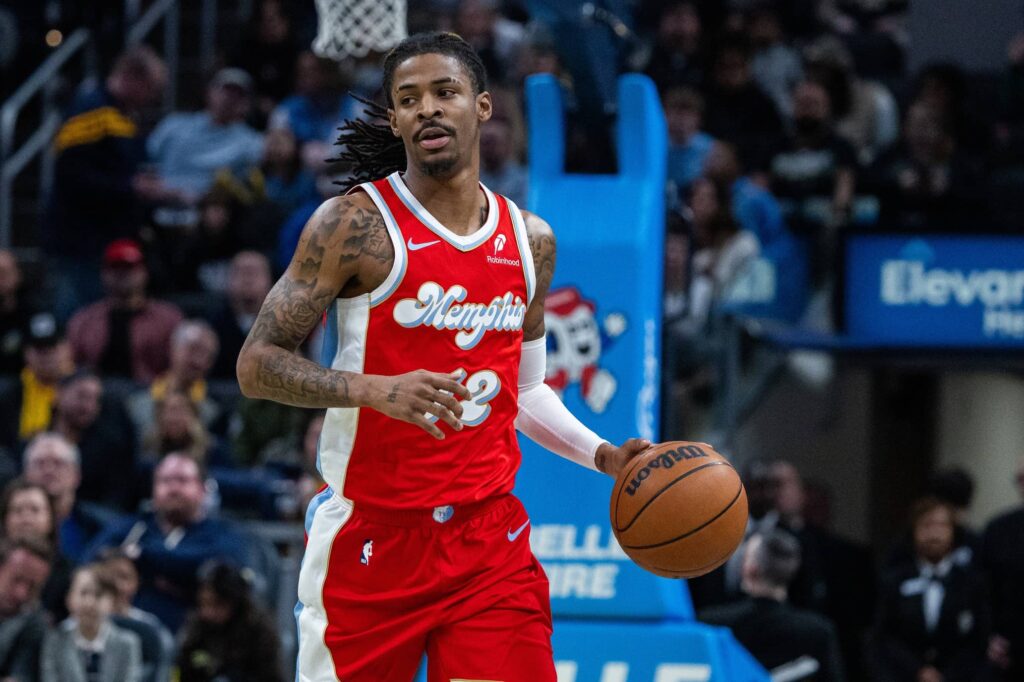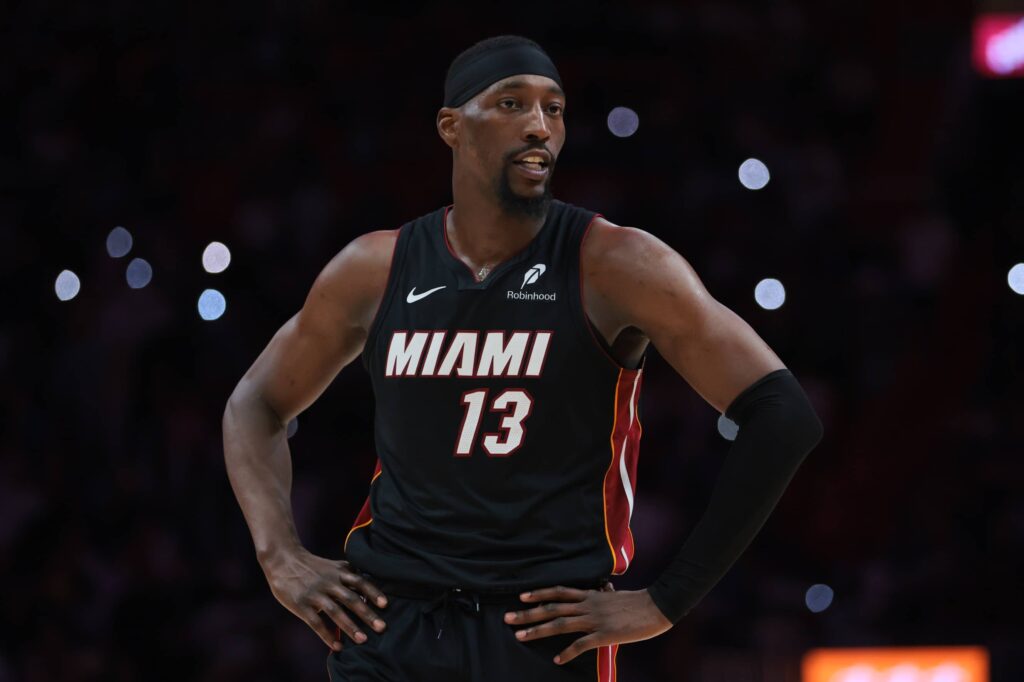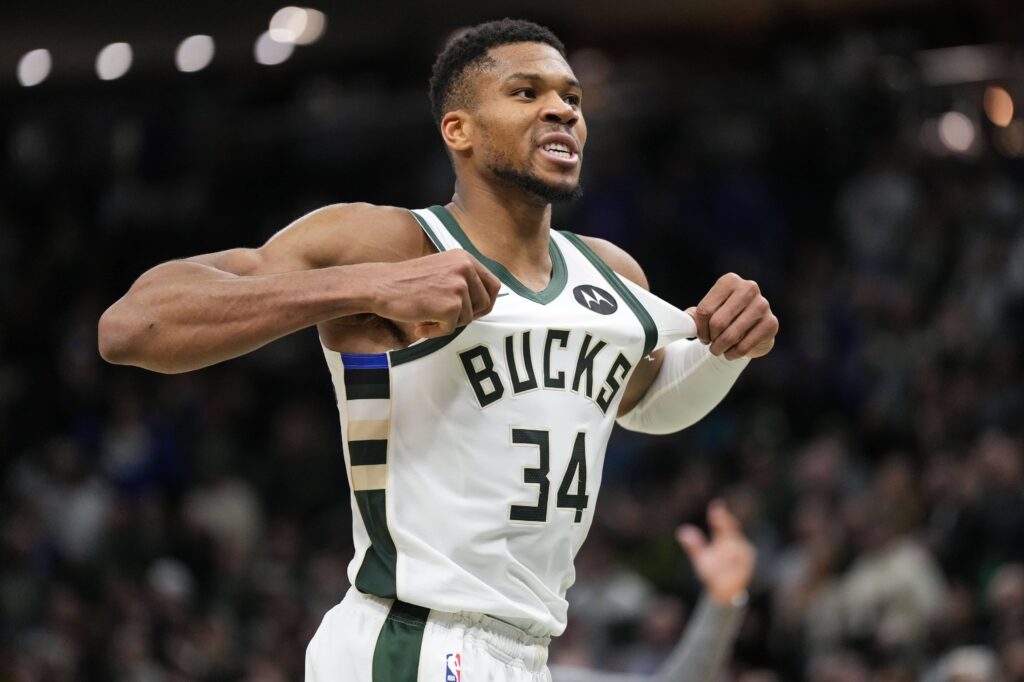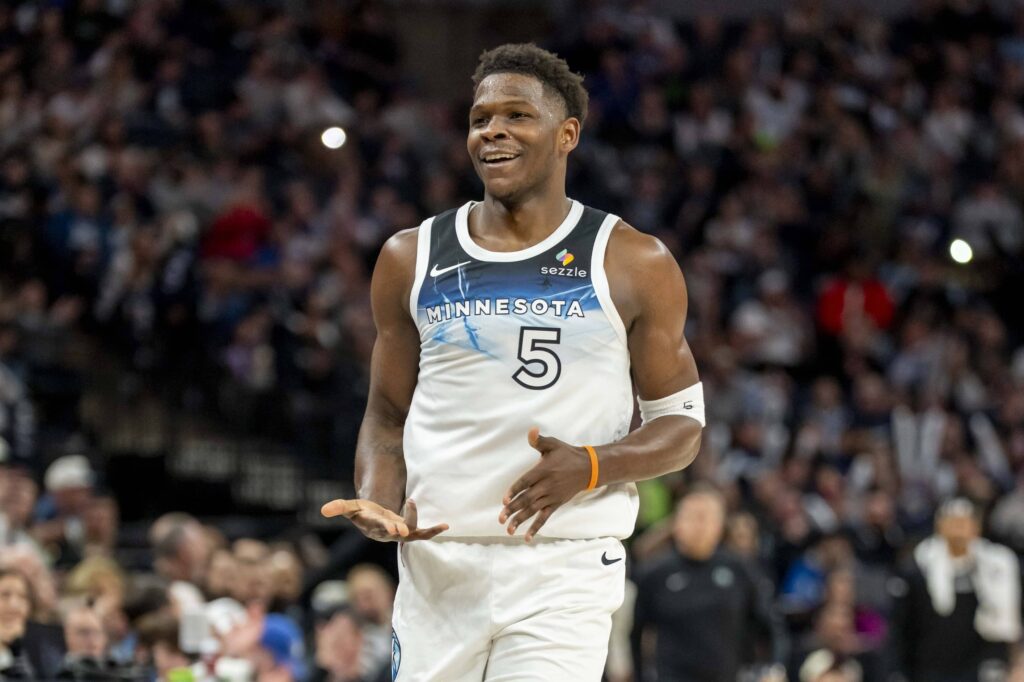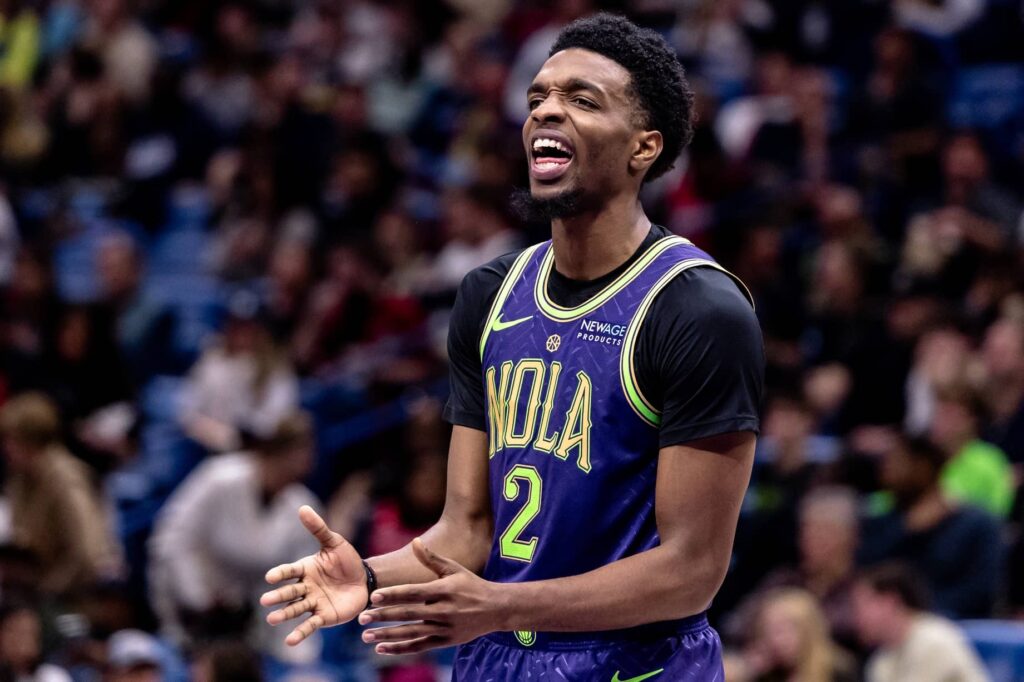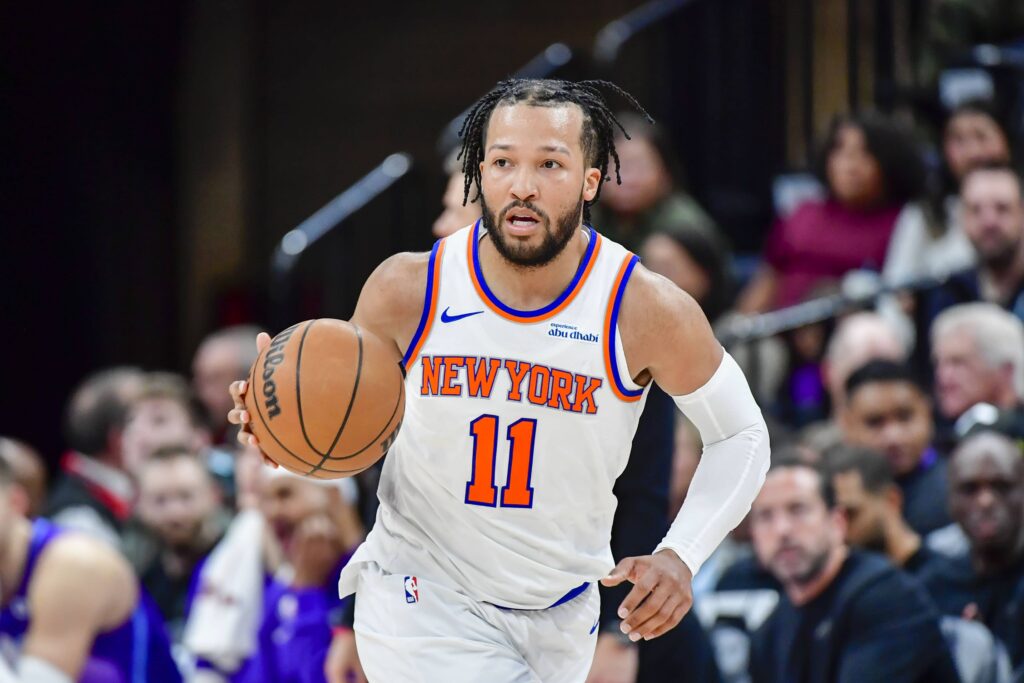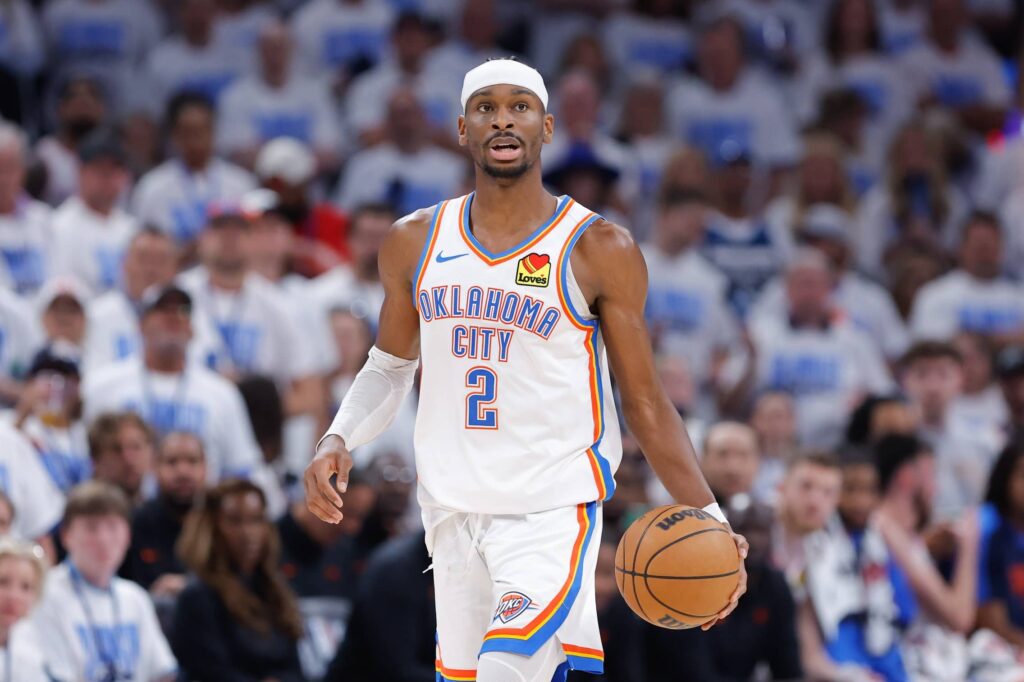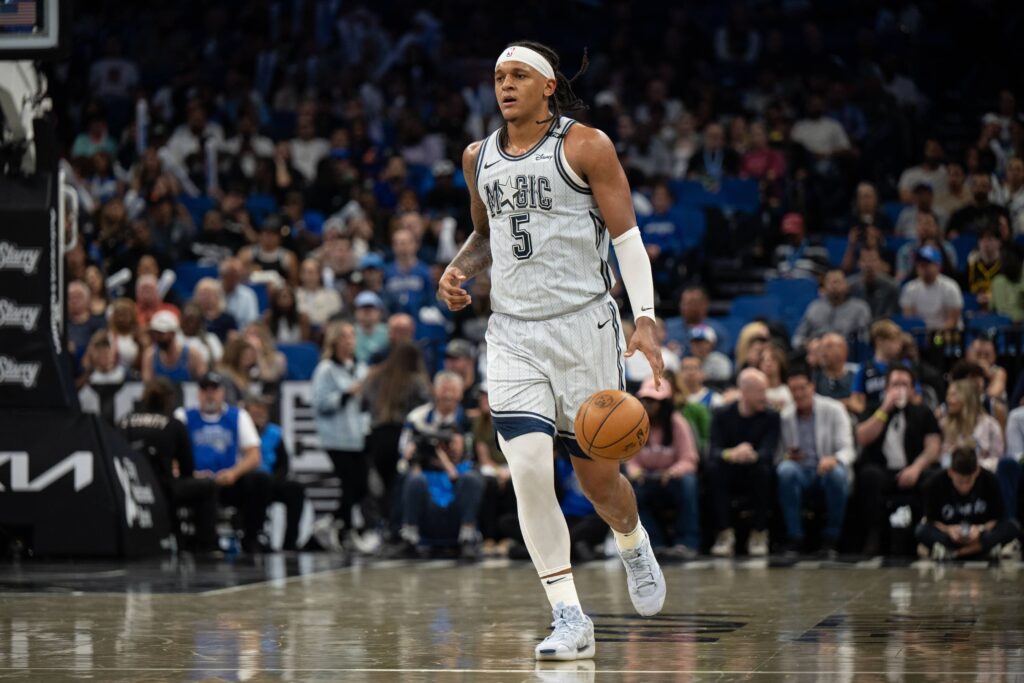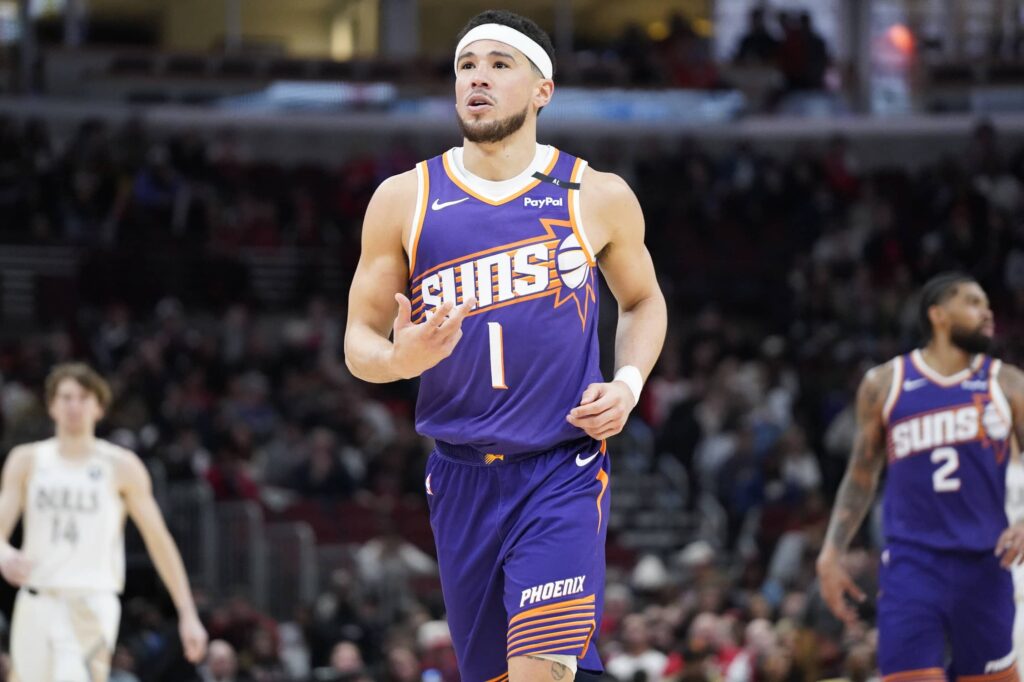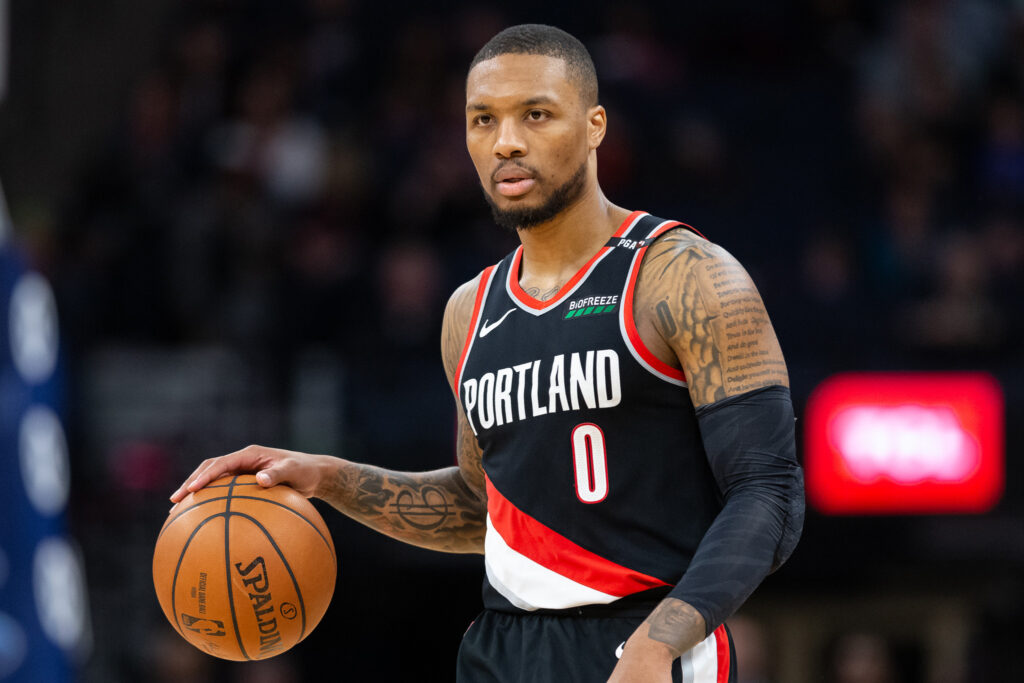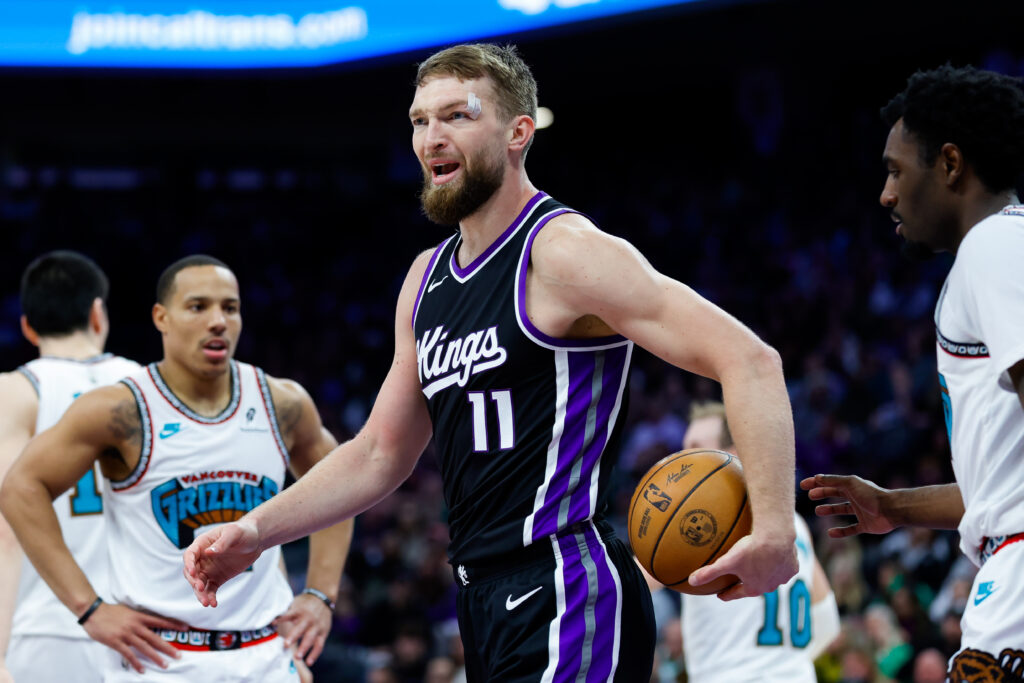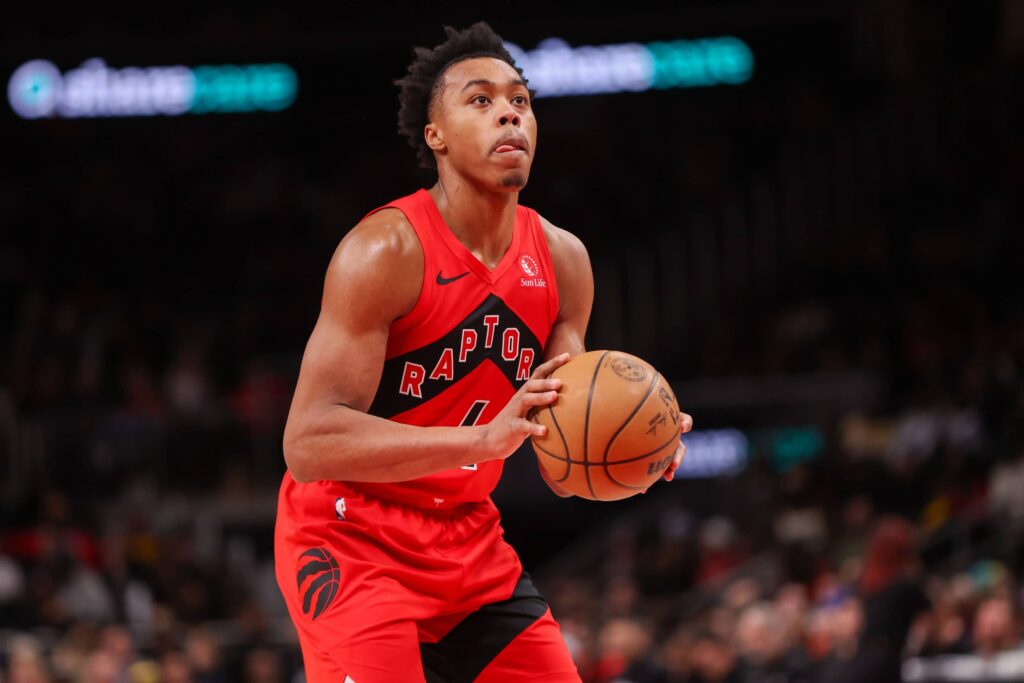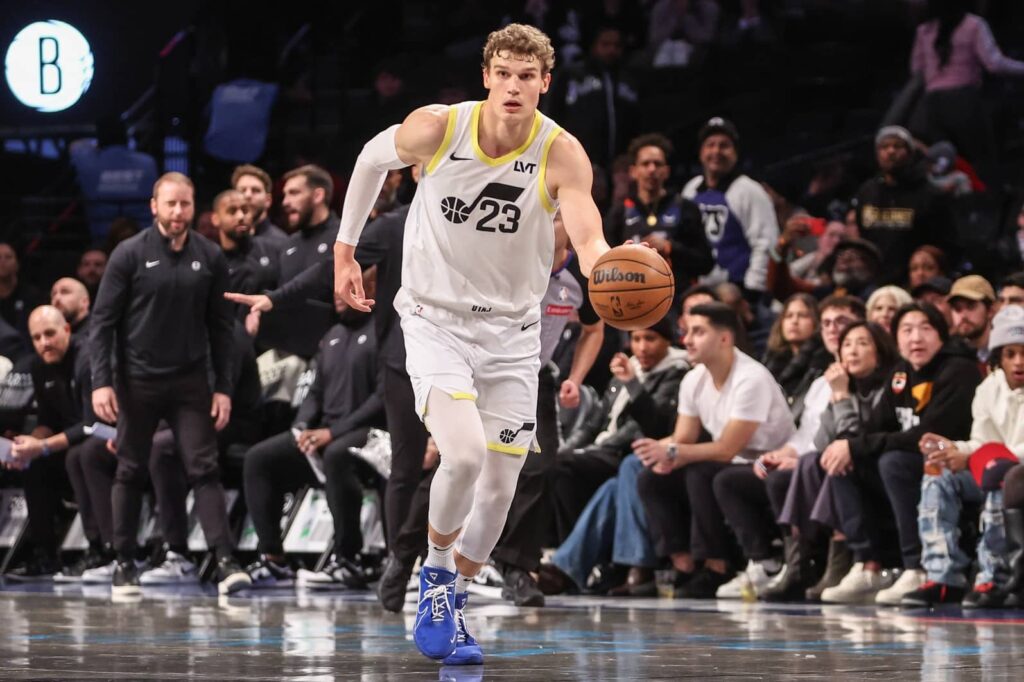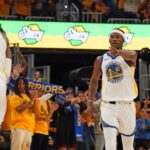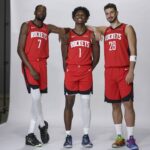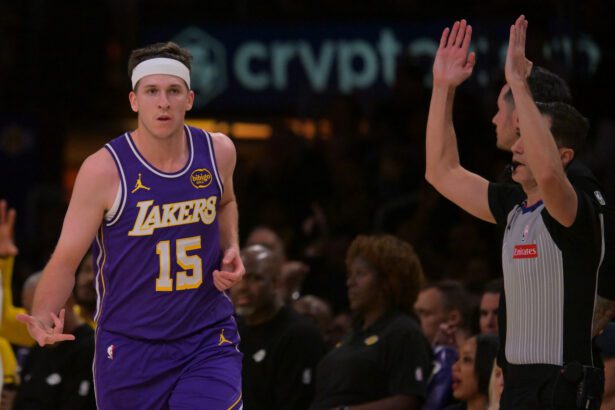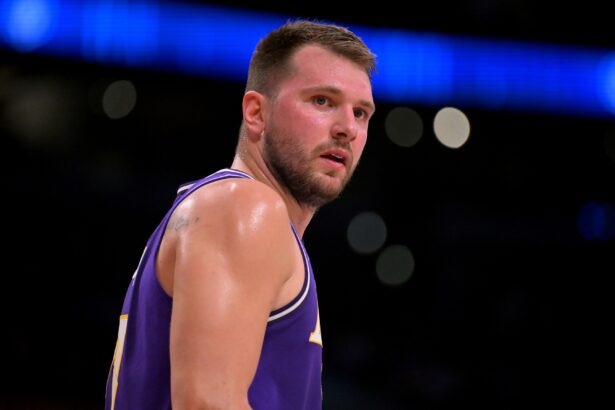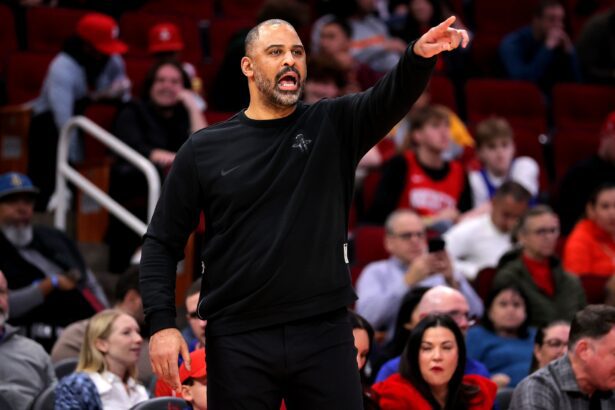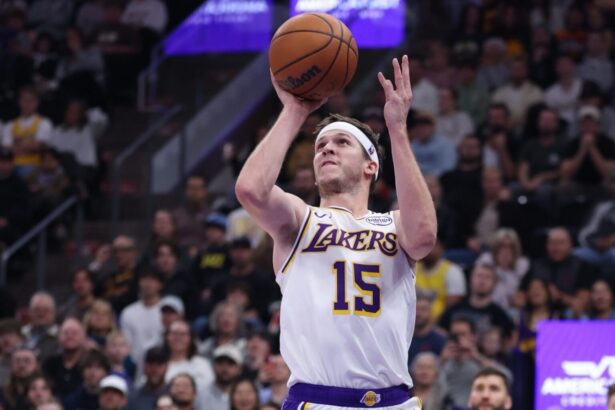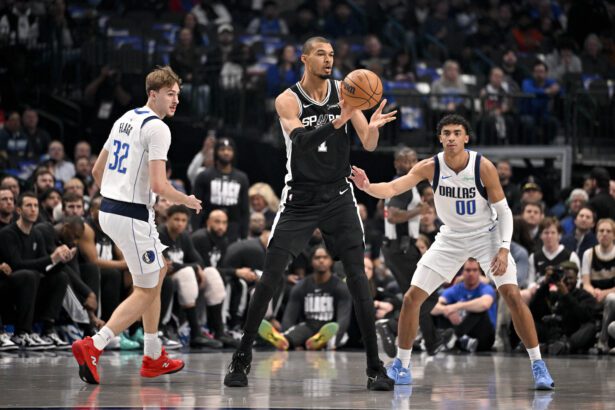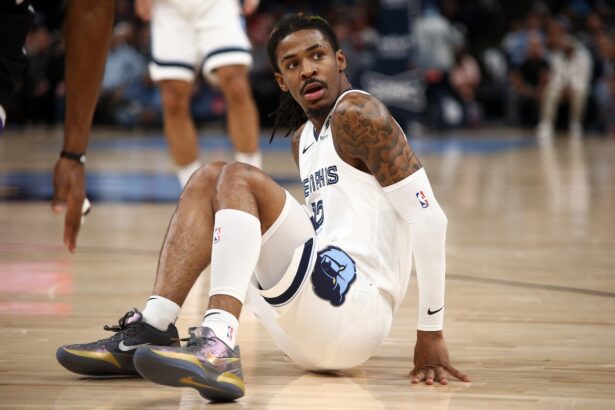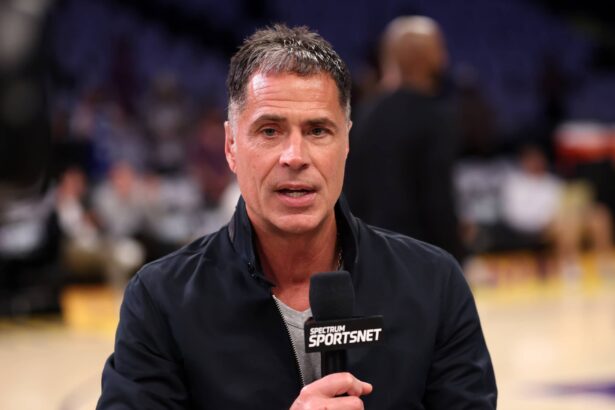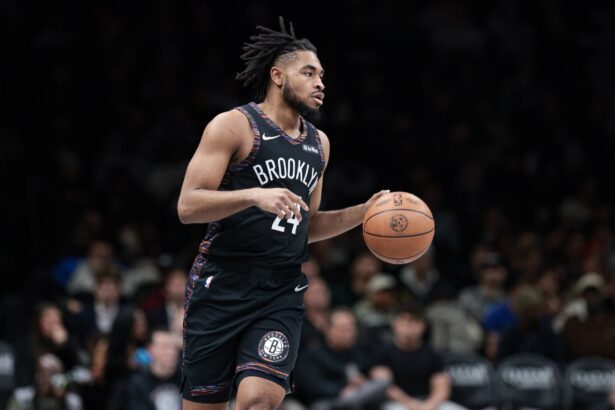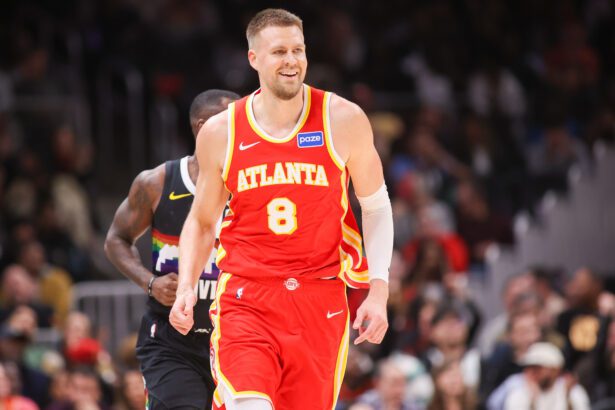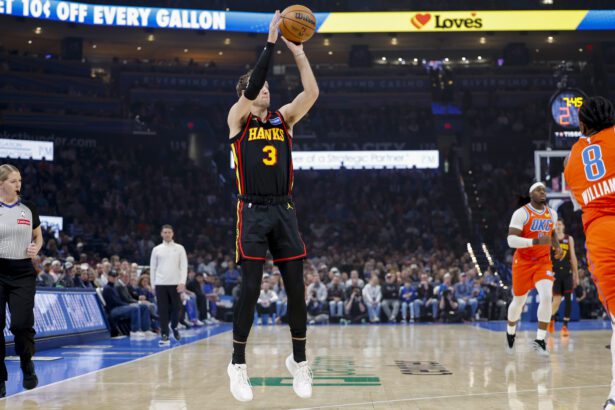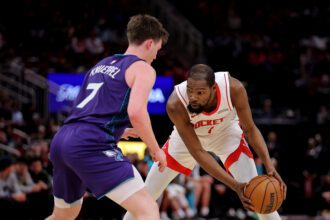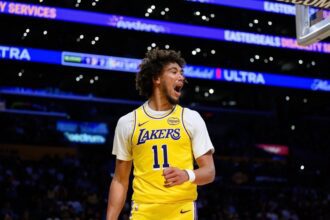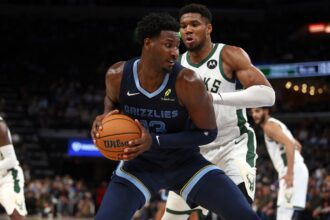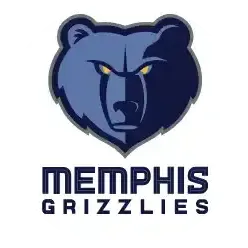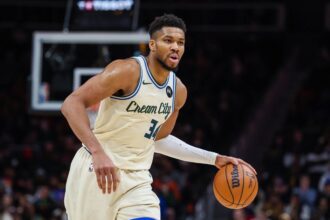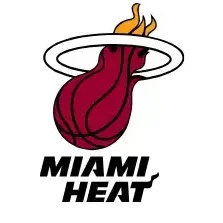As we get closer to the 2025-26 season, with preseason already started, every franchise is leaning on more than just talent. Each team needs a leader who sets the tone both on and off the court. While superstars often dominate the headlines with their scoring or highlight-reel plays, leadership is arguably just as important.
- Atlanta Hawks – Trae Young
- Boston Celtics – Jayson Tatum
- Brooklyn Nets – Cam Thomas
- Charlotte Hornets – LaMelo Ball
- Chicago Bulls – Nikola Vucevic
- Cleveland Cavaliers – Donovan Mitchell
- Dallas Mavericks – Klay Thompson
- Denver Nuggets – Nikola Jokic
- Detroit Pistons – Cade Cunningham
- Golden State Warriors – Stephen Curry
- Houston Rockets – Fred VanVleet
- Indiana Pacers – Tyrese Haliburton
- Los Angeles Clippers – James Harden
- Los Angeles Lakers – LeBron James
- Memphis Grizzlies – Ja Morant
- Miami Heat – Bam Adebayo
- Milwaukee Bucks – Giannis Antetokounmpo
- Minnesota Timberwolves – Anthony Edwards
- New Orleans Pelicans – Herb Jones
- New York Knicks – Jalen Brunson
- Oklahoma City Thunder – Shai Gilgeous-Alexander
- Orlando Magic – Paolo Banchero
- Philadelphia 76ers – Tyrese Maxey
- Phoenix Suns – Devin Booker
- Portland Trail Blazers – Damian Lillard
- Sacramento Kings – Domantas Sabonis
- San Antonio Spurs – Victor Wembanyama
- Toronto Raptors – Scottie Barnes
- Utah Jazz – Lauri Markkanen
- Washington Wizards – CJ McCollum
Identifying the player who carries this responsibility is as crucial as analyzing stats or roster moves, because leadership often translates directly into wins. As we break down each team, we’ll highlight the player whose impact goes far beyond the stat sheet to see who the leader is for each franchise.
Atlanta Hawks – Trae Young
Trae Young is the undeniable heartbeat of the Hawks, even if he tends to get criticized more than he should. Beyond his deep-range shooting and clutch plays, Young’s leadership manifests in his willingness to shoulder responsibility in high-pressure moments. That certainly isn’t the easiest thing to handle in the NBA.
Off the court, his presence in team meetings and community initiatives signals a player who understands that being a franchise cornerstone extends far beyond scoring and playmaking. No doubt, the Hawks go as Young goes right now, and he is the leader for the franchise.
Boston Celtics – Jayson Tatum
Jayson Tatum’s calm, methodical leadership has matured into a defining trait for the Celtics. As the team’s primary scorer and defensive anchor, he has guided Boston through the ebbs and flows of a long season with poise and professionalism. Tatum’s influence is also in the trust he earns from teammates and the way he elevates those around him.
His presence in the locker room embodies stability, and he has become the face of Boston’s commitment to both excellence and character. Hopefully, the All-NBA star returns from an Achilles injury at an even higher level than before he went down because the 27-year-old has even more to accomplish in the NBA.
Brooklyn Nets – Cam Thomas
Cam Thomas, even when dealing with contract problems this summer, is the Nets’ spark plug, a player whose infectious energy and confidence set the tone nightly. With his scoring bursts and fearless shot selection, Thomas leads by example, showing teammates how to balance flair with efficiency.
In Brooklyn’s locker room, his charisma and competitive fire should make him a central voice in team culture. Hopefully, Thomas can signal a new chapter for a franchise seeking consistency and identity after years of transition and issues with team-building, because there isn’t a better leader on the roster right now.
Charlotte Hornets – LaMelo Ball
LaMelo Ball is the face of the Hornets’ identity with his flashy playmaking and fearless offensive plays. But his leadership extends beyond highlight reels; he consistently has to be the bridge between the coaching staff and roster members because no other player on the team has been as excellent on the floor and probably in practice.
Ball’s energy, optimism, and competitive spirit make him a central figure both in Charlotte’s locker room and in community initiatives, reinforcing his role as the franchise’s charismatic ambassador. Sure, Ball has room to grow as a leader, but he seems to be on the right track as he continues to improve his game.
Chicago Bulls – Nikola Vucevic
Nikola Vucevic anchors the Chicago Bulls with quiet authority, blending veteran savvy with consistent production. While he may not always command the spotlight, his leadership is evident in his steady guidance of younger players, and experience is his biggest calling card for a rebuilding team in the Eastern Conference.
Vucevic’s presence stabilizes Chicago’s frontcourt and serves as a model of professionalism, demonstrating how a seasoned player can influence team culture and performance simultaneously. The proof of Vucevic being a strong leader is leading the Bulls to some more wins because the youngsters on the team will be able to be effective around strong leaders.
Cleveland Cavaliers – Donovan Mitchell
Donovan Mitchell’s leadership is a unique mix of fiery scoring and inspirational presence. On the floor, he drives Cleveland’s offense and elevates teammates with his energy and excellent scoring ability. Even if Mitchell gets criticized for not being the “guy” who can lead a championship team, we slightly beg to differ.
Mitchell has become the face of the Cavaliers by his own accord, appreciating the roster around him and embodying a sense of responsibility that galvanizes both young talent and veteran players. His combination of skill and improving presence as a vocal leader cements him as the definitive leader of the franchise right now.
Dallas Mavericks – Klay Thompson
Klay Thompson brings veteran poise to a Mavericks squad eager for stability. While Kyrie Irving and Anthony Davis will dominate the stats, Thompson’s leadership is subtler. He isn’t as good as Irving or Davis, but he has been there and done that and won’t have the never-ending issues with health and questionable behavior that the two superstars will have at times.
Thompson has to mentor his younger teammates, maintaining composure in pressure-packed moments as required. His experience and quiet confidence provide a blueprint for professionalism, making him an essential presence in Dallas as the team balances youth around Cooper Flagg with championship aspirations.
Denver Nuggets – Nikola Jokic
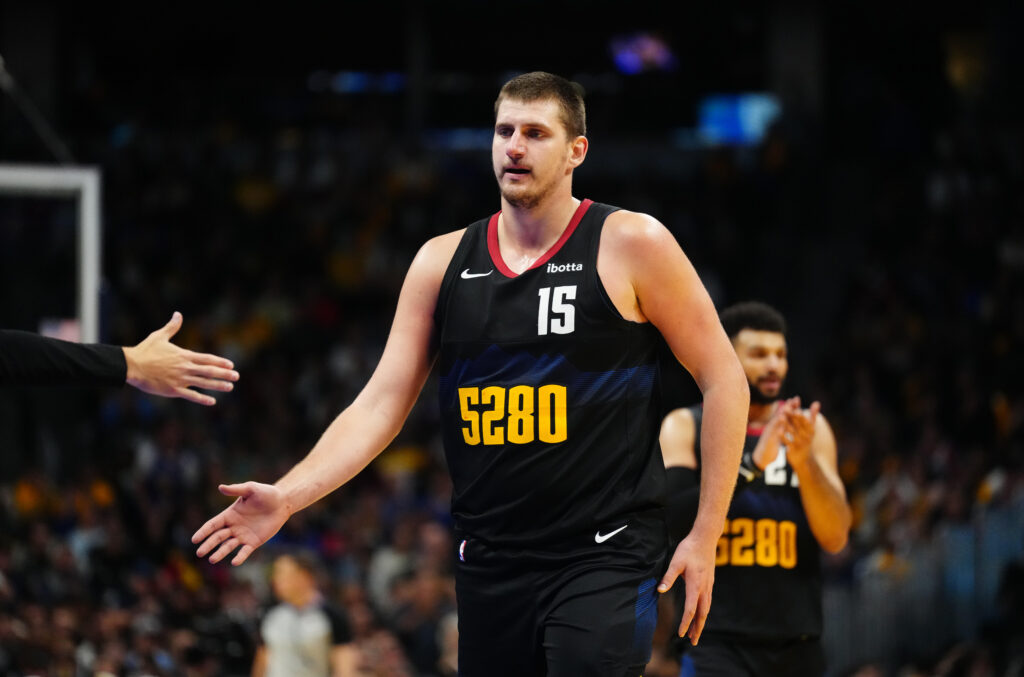
Nikola Jokic is the unquestionable center of the Nuggets, commanding attention with his superstar playmaking and calm leadership. His influence on the court is unmistakable, dictating pace and orchestrating Denver’s offense with surgical precision. It certainly helps that the Serbian is the best player in the world.
Off the floor, Jokic’s low-key demeanor masks a presence in mentoring teammates and fostering teamwork, making him both a statistical phenom and an indispensable leader in guiding the franchise’s culture. The big man doesn’t need the spotlight, dishes out the attention to his teammates, and is one of the most humble stars of all time.
Detroit Pistons – Cade Cunningham
Cade Cunningham’s emergence as Detroit’s cornerstone is defined by more than his elite skill set; it’s his composure, vision, and ability to inspire teammates that mark him as a leader. At just 24, Cunningham is the team’s primary decision-maker, setting the tone in critical stretches while demonstrating a maturity beyond his years.
His daily work ethic, interaction with his teammates, and dedication to building a winning culture make him the clear standard-bearer for the Pistons. Cunningham’s performances and improved play have been evident because he has guided the Pistons back to the playoffs and seems to be on an MVP trajectory right now.
Golden State Warriors – Stephen Curry
Even if Draymond Green is the vocal leader and bodyguard of the team, Stephen Curry redefines leadership through excellence, vision, and charisma. Even as a veteran, his influence permeates every aspect of Golden State’s operations, from game strategy to mentoring rising stars like Jonathan Kuminga and Moses Moody.
Curry’s gravity on the court demands defensive attention and sets the tone offensively, while off the court, he embodies professionalism, community engagement, and the infectious confidence that has made the Warriors a model franchise. By allowing other stars to shine around him, Curry leads by appreciation for the game of basketball.
Houston Rockets – Fred VanVleet
Fred VanVleet’s leadership in Houston is built on tenacity and example, and his presence will be missed on the court as he deals with an ACL injury. However, he will still be a leader in the locker room and around practices as an extension of Ime Udoka. VanVleet has been the leader in Houston since he arrived, and that won’t change even if Kevin Durant is in town.
The former NBA champion sets the standard for younger Rockets while driving a culture of accountability. Off the court, his approachable yet focused demeanor fosters camaraderie, making him a stabilizing presence that the franchise desperately needed during their rebuilding years after James Harden left.
Indiana Pacers – Tyrese Haliburton
Tyrese Haliburton has quickly become the Pacers’ cerebral leader, combining elite playmaking with calm, steady leadership. His intelligence on the court dictates tempo and execution, while his approachable, professional nature elevates teammates’ confidence and accountability.
His presence in team meetings and mentorship roles solidifies him as the core figure in Indiana, embodying the balance between performance and leadership. Guiding the Pacers to the NBA Finals in 2025 was one major stepping stone in Haliburton’s leadership growth, and we think there’s more to come from him.
Los Angeles Clippers – James Harden
Kawhi Leonard is often unavailable and not exactly a leader in character, but James Harden’s leadership for the Clippers blends experience with influence. On the court, he dictates offensive flow and creates opportunities for teammates, while off the court, he provides guidance to a roster navigating high expectations.
Harden’s veteran insight and proven pedigree (especially in the regular season) give him a unique role as both mentor and central figure in fostering team cohesion in Los Angeles. The Beard is still an All-Star in the league and the primary ball-handler, so his impact is easily followed for the Clippers every night.
Los Angeles Lakers – LeBron James
Luka Doncic is the best player on the team, but until further notice, LeBron James remains the Lakers’ definitive leader. Beyond his historic production, LeBron’s mentorship, understanding, and ability to unify a diverse roster are unparalleled. When people line up to watch Lakers games, they come to see Luka but mainly want to see how The King goes to work.
Whether on the court, orchestrating plays, or in the locker room offering guidance and accountability, his presence is a constant reminder of championship standards and the cultural weight of being the face of the franchise. LeBron’s years in the NBA are numbered as he approaches 41 years old, but he is still the man in LA.
Memphis Grizzlies – Ja Morant
Ja Morant is the engine of the Grizzlies’ identity, even if he needs to go through the growing pains that come with being a leader. He can easily electrify crowds and be the best player on a playoff team, but the problems lie in his inability to stay healthy or focused on the basketball court at times.
He is still young at only 25 years old, so Morant’s presence symbolizes Memphis’ youth-driven culture and competitive edge. Hopefully, he will start to consistently challenge teammates to match his intensity and embrace their roles because the Grizzlies have an exciting core that would be a shame if it went to waste.
Miami Heat – Bam Adebayo
Bam Adebayo’s leadership in Miami is defined by consistency, versatility, and accountability. Anchoring the defense while contributing significantly on offense, he sets a tone of effort and resilience for his teammates, which clearly fits into “Heat Culture” and what Erik Spoelstra demands of everyone.
Bam knows what it means to lead by action and example, and he is the driving force of the new era that doesn’t include Jimmy Butler anymore. By focusing on defense, playmaking, and playing hard, Bam has worked his way into being untouchable by the Heat organization, and for that, he is their leader going forward.
Milwaukee Bucks – Giannis Antetokounmpo
No matter the circumstances, Giannis Antetokounmpo continues to lead Milwaukee through dominance and example. His unmatched physical presence on both ends of the floor inspires teammates, while his work ethic and commitment to continuous improvement are exactly what a franchise player should bring every night.
Beyond stats, Giannis’ approachable leadership and focus on culture cement him as the cornerstone of a franchise that blends winning expectations with deep community engagement. The Bucks realize what they have in Giannis, a true superstar, which is why they will do everything in their power to keep him in town and happy to wear the uniform.
Minnesota Timberwolves – Anthony Edwards
Anthony Edwards’ leadership is easily evident by his infectious energy and competitive drive. As the Timberwolves’ primary offensive weapon and the undisputed leader, he inspires confidence in all players while setting a standard for intensity. Like it or not, Edwards is the future face of the NBA.
Edwards’ presence in the locker room and his willingness to take accountability for results make him a central figure in Minnesota, representing the franchise’s ambition and evolving identity. Hopefully, the superstar guard will one day guide the ‘Wolves to a championship because he has all the tools to be their driving force.
New Orleans Pelicans – Herb Jones
Zion Williamson is not the leader of the Pelicans, and quite frankly, there aren’t many on the team. But Herb Jones’ leadership is subtle but impactful, anchored in defensive mastery and selfless play. At the very least, Jones does his best on both ends of the floor and certainly plays hard every night.
While not always the flashy centerpiece, Jones sets an example for effort, accountability, and team-first mentality, embodying the traits necessary to guide New Orleans’ young roster toward success someday. Jones was rewarded with a long-term contract this summer, and we don’t think that will stop his growth.
New York Knicks – Jalen Brunson
Jalen Brunson anchors the Knicks with poise, intelligence, and offensive precision. His leadership is easily visible because he directs the floor with confidence while fostering trust and cohesion in the locker room. The Knicks essentially go as far as Brunson takes them in the regular season and the playoffs.
Brunson’s consistent professionalism, combined with his ability to elevate teammates in crucial moments, positions him as the clear leader and public face of a franchise eager for stability and success. Being the face of the Knicks is no easy task, but Brunson has carried the torch perfectly as he looks to deliver an NBA title.
Oklahoma City Thunder – Shai Gilgeous-Alexander
Shai Gilgeous-Alexander exemplifies the Thunder’s identity: young, talented, and hungry to win. On the court, his ability to create for himself and teammates establishes him as the linchpin of Oklahoma City’s championship goals, and last season was a prime example of that.
Even off the court, Shai’s measured professionalism and leadership in mentoring younger players make him the cornerstone of a franchise in the midst of a long-term rebuild that turned into championship glory. Shai is improving, and the MVP is inarguably the leader of the team, both now and in the future.
Orlando Magic – Paolo Banchero
Paolo Banchero’s leadership in Orlando is rooted in example and adaptability. As a young superstar, he balances scoring responsibility with mentorship for emerging teammates such as Franz Wagner and Jalen Suggs. Banchero is the man in Orlando, and we think there’s plenty more to come from him.
His calm demeanor and ability to lead through performance rather than words set a tone of professionalism and ambition. That signals a very bright future for the Magic around a player capable of anchoring both the roster and culture. If Banchero stays healthy, he could lead the Magic deep into the postseason in a wide-open Eastern Conference.
Philadelphia 76ers – Tyrese Maxey
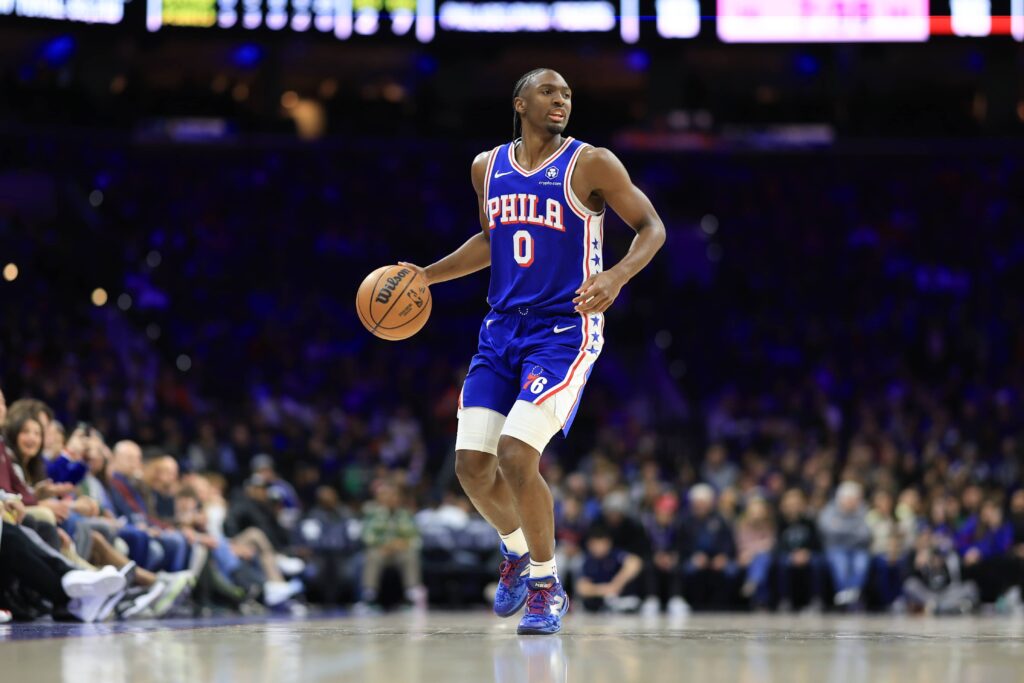
Tyrese Maxey has emerged as the 76ers’ energizing leader, combining elite scoring bursts with fearless playmaking. Joel Embiid’s leadership has been questioned at times, mainly due to unavailability, so Maxey has taken the role of calling others out and being the leader the organization desperately needs.
His intensity inspires teammates, and his work ethic resonates throughout Philadelphia’s locker room. Maxey’s leadership style, bold, proactive, and unapologetically competitive, cements his role as a franchise figurehead capable of steering the team through adversity. We recognize it, and it’s time everyone does as well.
Phoenix Suns – Devin Booker
Devin Booker has led the Suns through both performance and example. His ability to take over games while balancing offensive efficiency sets a standard for his teammates. Even during the bad seasons, Booker’s presence has never wavered. In the good days, Booker’s presence was magnified.
Off the court, Booker’s mentorship of players and engagement with the community reinforce his role as a leader, embodying the competitive and professional culture the Suns aim to maintain. Sure, the biggest contract extension in history helps, but Booker has stayed focused on his craft while in Phoenix.
Portland Trail Blazers – Damian Lillard
Damian Lillard is back, and his leadership will be defined by accountability, clutch production, and unwavering commitment. Lillard commands respect through both performance and presence, as arguably the franchise’s greatest player alongside Clyde Drexler.
Lillard’s public and private leadership ensures Portland remains competitive while nurturing a culture centered on professionalism and resilience. Fans are happy he is back, and so is the NBA world because he never wanted to leave in the first place. With Dame back in town, the Trail Blazers finally have something to look forward to.
Sacramento Kings – Domantas Sabonis
Domantas Sabonis anchors Sacramento through consistency and quiet authority. His intelligence on both ends of the court and ability to facilitate for teammates make him the team’s central figure, since De’Aaron Fox is no longer on the team.
Sabonis’ leadership is reinforced by his approachability and mentorship, serving as a stabilizing presence in an ever-evolving roster. The big man has had to carry a heavy load in Sacramento, considering all the moving parts, and his consistency on and off the court reflects his leadership status.
San Antonio Spurs – Victor Wembanyama
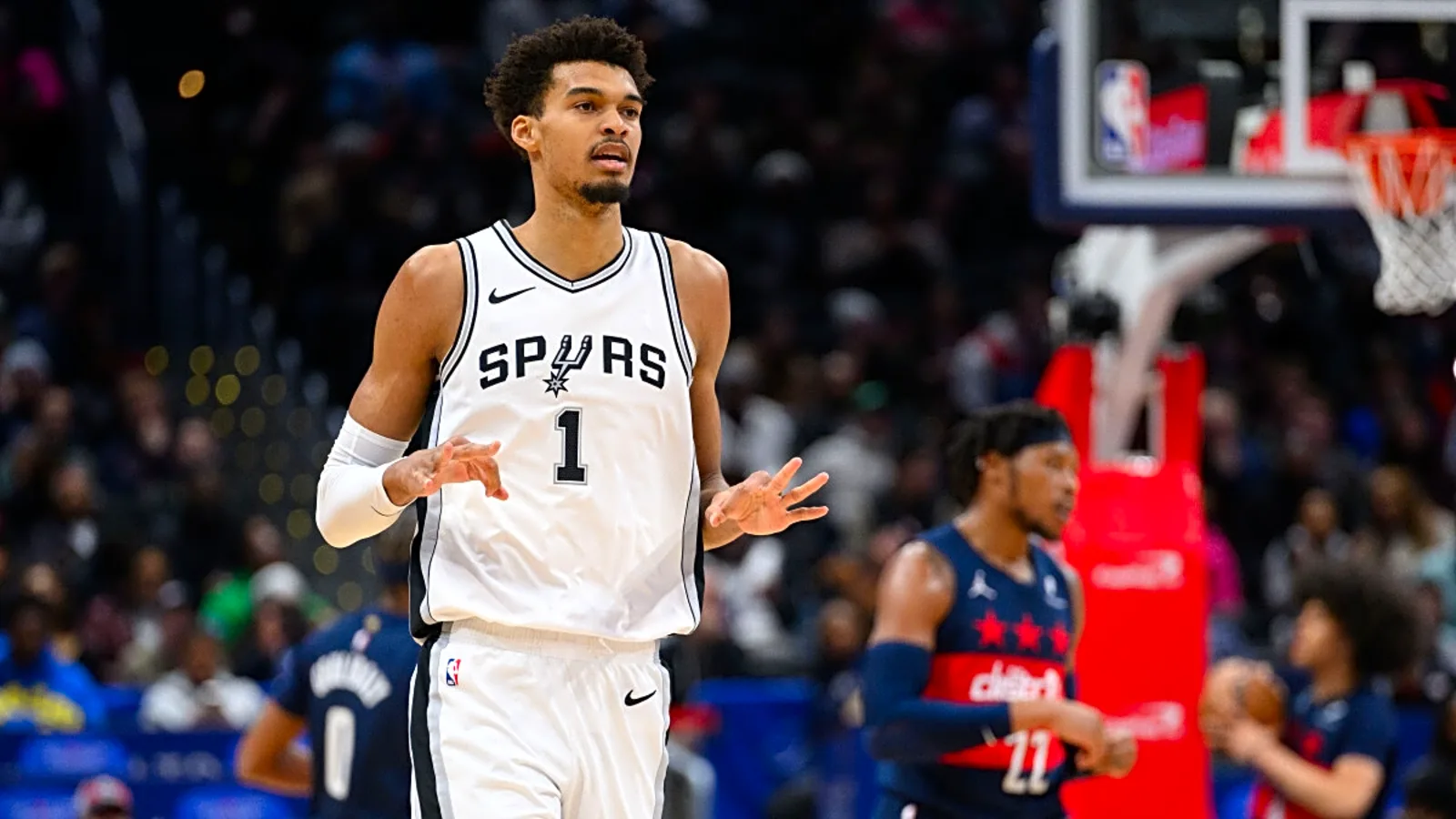
Victor Wembanyama’s leadership transcends his 7’4″ frame, combining unprecedented skill with a cerebral approach to the game. As a generational talent, he not only dominates on the floor but also sets standards for preparation and professionalism, influencing both young prospects and veterans alike.
Wembanyama’s presence signals a new era for the Spurs, where expectations revolve around excellence, accountability, and transformative potential. Wemby is only 22 years old but is taking on a leadership role quicker than we expected. The next step? Carrying his team in the playoffs, and it could happen as soon as next season.
Toronto Raptors – Scottie Barnes
Scottie Barnes embodies the Raptors’ hybrid leadership even if he is still quite young. He impacts games on both ends while setting a standard for effort and communication, and hopes to do that to improve the talents of Brandon Ingram. Barnes is the franchise star of the team, and he is aware of that.
His presence as the only major All-Star on the team reinforces his role as a leader, reflecting Toronto’s culture of long-term development. For Barnes to improve his leadership skills, it just boils down to continuing to gain experience in the NBA and prove to be more than just an All-Star player but an All-NBA talent someday.
Utah Jazz – Lauri Markkanen
Lauri Markkanen’s growing leadership in Utah is defined by talent and professionalism. As a forward capable of stretching defenses and contributing defensively as well, he sets an example through consistent performances more than anyone else on the team. Naturally, that makes him a leader.
Off the court, his quiet confidence and mentorship are important, positioning him as the Jazz’s central figure in both culture and execution. Hopefully, the Jazz give Markkanen some talented players to work with and start improving the number of wins he can deliver for the team in a competitive Western Conference.
Washington Wizards – CJ McCollum
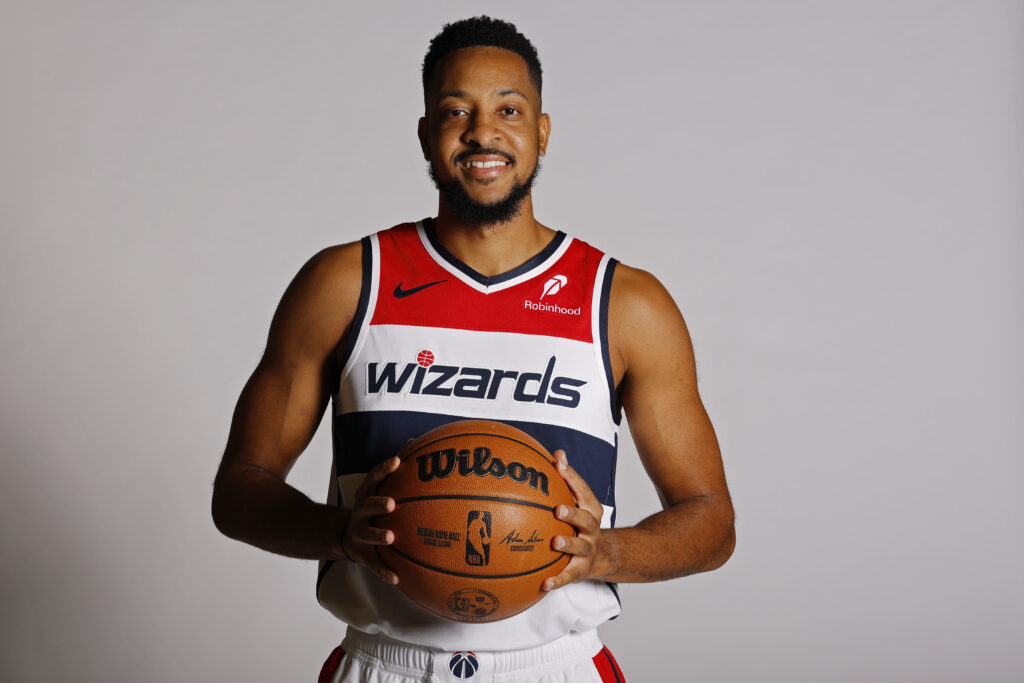
CJ McCollum will be the Wizards’ stabilizing voice until further notice, blending veteran wisdom with scoring acumen. His leadership is expressed through preparation, mentorship, and consistent execution in high-pressure moments.
McCollum’s influence in the locker room and commitment to culture make him the franchise’s guiding presence as Washington navigates a competitive Eastern Conference landscape. We aren’t sure if McCollum will last in Washington long enough, but as of now, there isn’t a better leader for them.


